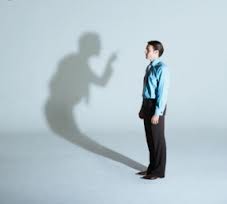A Psychodynamic Perspective on Idealization
Many people are dominated by a powerful fantasy and they usually have no idea about it or the way it affects their behavior. It often lies behind difficulties with procrastination, the inability to follow-through, apparent lack of motivation and many other problems.   It has to do with the ideal life, the one these individuals feel that they should be leading.
How would you like to live on an island where anything you needed automatically came to you without effort, even before you recognized that you needed it?  You wouldn’t have to strive for anything, or feel frustration about the struggle. The climate would be perfectly mild, too, never varying more than a degree or two in either direction.  Virtually nothing painful could touch you because the island would be perfectly safe and hold no inherent threats, protected from the rest of the dangerous world by a buffering sea of tranquility.
Welcome to the womb. While the intrauterine world isn’t as perfectly serene as I paint it, compared to the shock of childbirth and everything that comes afterward in life, it seems ideal. The fantasy that one could have such a perfect existence during one’s lifetime, though unacknowledged, is widespread; the expectation that one should have such a life lies at the heart of many severe psychological problems. I’m not suggesting that people consciously think this way, but the internal demand that life be perfect often controls them anyway.
